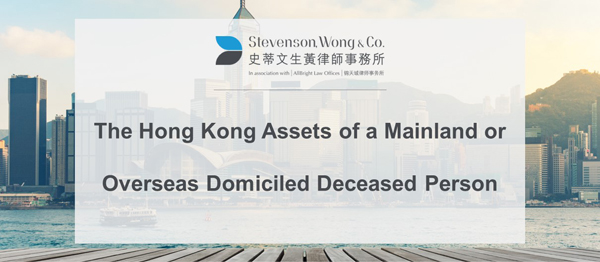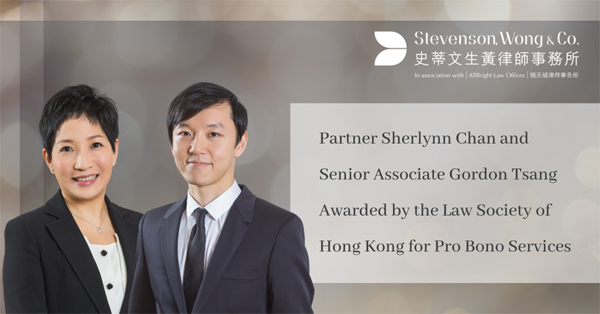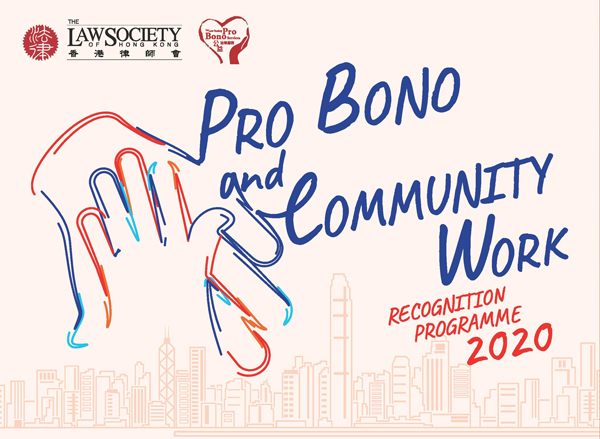(中文) 受新冠肺炎疫情影响,很多企业遭受经济损失,往往未能履约,产生违约事件,甚至面临破产和清盘。根据香港破产管理署在2021年1月15日发布的数据显示,2020年香港申请强制公司清盘和申请个人破产的宗数均创四年来新高。
清盘或破产呈请中,亦涉及了很多内地和香港的跨境破产程序,例如正在内地进行破产清算的企业有很多资产位于香港,内地的破产管理人需取得这些位于香港的资产的控制及处置权,这就需要香港法院对内地破产管理人提供相应的协助。
在2020年,香港法院先后颁下了两个重要判决,承认和协助由内地法院委任的破产管理人。这是内地和香港在跨境破产清盘法律方面的重大发展。本文将对两个案件进行简单介绍:

上海华信国际集团有限公司 ([2020] HKCFI 167) 案
2020年1月13日,香港高等法院原讼法庭夏利士法官 (Mr. Justice Harris) 在上海华信国际集团有限公司 ([2020] HKCFI 167) 一案中,颁下了香港法院首次承认和协助内地破产管理人的命令。
■ 案件背景
上海华信国际集团有限公司 (“上海华信”) 是一家于中国内地成立的公司。由于无力清偿债务,已在内地进入破产清算程序。上海市第三中级人民法院委任了上海华信的破产管理人。上海华信在香港拥有子公司,且在香港的主要资产是该子公司欠上海华信的720万港币的欠款,而此笔欠款已被另一独立第三方债权人以申请“第三债务人暂准命令” (garnishee order nisi) 的方式进行了扣押。一般而言,若债权人在取得“第三债务人暂准命令”后,再进一步取得“第三债务人绝对命令”的申请程序 (garnishee order absolute),则该债权人可就该等欠款立即执行,其他方将难以作出阻挠。

为阻止该第三方债权人取得“第三债务人绝对命令”,破产管理人紧急向香港法院申请承认和协助,以搁置该第三方债权人就“第三债务人绝对命令”的申请程序。
依照上海华信破产管理人的申请,香港法院提供了承认和协助,暂时搁置了上述法律程序。
■ 承认和协助内地破产管理人所适用的法律原则
夏利士法官认为,要承认并协助在大陆法系司法管辖区下提起的清盘程序,必须满足以下条件:
(a) 该域外清盘程序须为集体程序;以及
(b) 该域外清盘程序须在该企业成立的地区提起。
(判决原文:From these decisions the following criteria emerge, which must be satisfied before recognition and assistance will be granted.
(a) the foreign insolvency proceedings are collective insolvency proceedings.
(b) the foreign insolvency proceedings are opened in the company’s country of incorporation.
Provided the above criteria are satisfied, the Court may recognise insolvency proceedings opened in a civil law jurisdiction.)

夏利士法官解释道,承认和协助域外清盘程序并不意味着香港法庭会将香港本地清盘人在《公司(清盘及杂项条文)条例》(《香港法例》第32章) 下拥有的全部权力赋予域外清盘人。普通法下协助的权力仅限于:
(a) 让域外清盘人员能够在香港行使他们在获委任地的法律下可以行使的权力;
(b) 只有在域外清盘人员有必要履行其职务时;以及
(c) 与提供协助法院所适用的实体法和公共政策一致。
当清盘人获得委任的司法管辖区的清盘制度与香港的清盘制度相似,那么法院可以颁令使域外清盘人与香港本地清盘人拥有大体上相同的权力。
(判决原文:The Companies Court does not, however, grant a foreign liquidator, whose appointment it has recognised all the powers available to a liquidator appointed by it pursuant to the Companies (Winding Up and Miscellaneous Provisions) Ordinance, Cap 32 (‘Ordinance’). The principles that circumscribe the limits of the common law power of assistance are explained …:
(a) The power of assistance exists for the purpose of enabling foreign courts to surmount the problems posed for a world-wide winding up of the company’s affairs by the territorial limits of each court’s powers…
(b) The power of assistance is available only when it is necessary for the performance of the foreign officeholder’s functions.
(c) An order granting assistance must be consistent with the substantive law and public policy of the assisting court.
Accordingly, … ‘[i]n the case of liquidators appointed in jurisdictions with similar insolvency regimes to Hong Kong, the assistance may extend to granting orders that give the foreign liquidators substantially similar powers’.”)

基于本案事实和法庭的分析,夏利士法官颁下决定,承认和协助上海华信的内地破产管理人。这是香港法院第一次对内地破产管理人予以承认和协助,也为香港法院在处理相关案件时提供了详细的法律原则。
深圳市年富供应链有限公司 ([2020] HKCFI 965) 案
2020年5月26日,夏利士法官再就深圳市年富供应链有限公司 ([2020] HKCFI 965) 一案颁下判词,再一次承认和协助内地破产管理人在港履行职务。
■ 案件背景
深圳市年富供应链有限公司 (“深圳年富”) 于中国内地注册成立,从事的业务包括供应链管理、物流管理以及境内和国际货运代理等服务。
2018年12月,深圳年富在内地进入破产清算程序,并由深圳中院委任了破产管理人。深圳年富的业务与香港有着紧密的联系。
■ 香港子公司陷入财务困难
在进入破产清算前,深圳年富曾通过两家香港子公司开展了一系列供应链相关的业务。这些子公司于香港持有多个银行账户,总额约为1250万元人民币,亦持有对外贸易应收账款约人民币41亿元。但是,担任这些子公司的独任董事在内地被拘留,子公司已无人管理和收回这些应收账款。

为了履行破产管理人的相关职责,深圳年富的破产管理人需将子公司的财务正规化,并收回相关账款。因此,深圳年富的破产管理人向香港法院提出了承认和协助的申请,以便行使深圳年富对其在香港子公司的所有权利。
■ 法庭决定承认和协助深圳年富的内地破产管理人
夏利士法官运用了其于上海华信案里已详细阐述的法律原则,认为深圳年富的清盘程序是在企业成立地 (即内地) 提起的集体程序,且深圳法院已委任了破产管理人。于是法官颁令给予深圳年富的破产管理人所申请的承认和协助。
(判决原文:I am satisfied that the winding-up in the Mainland is a collective insolvency proceeding in the Company’s place of incorporation and that the Liquidator has been appointed by the Shenzhen Court to wind up the Company. I will, therefore, order that the winding-up and the Liquidator are recognized.)

总结
香港法院在2020年相继就上述两个案件作出了裁定,这是涉及内地和香港跨境破产及清算法律相互协助的一大发展。两个案件充分表明了香港法院对于涉及内地和香港跨境破产/清算法律援助的支持态度,对于跨境破产/清算法律的发展具有重要意义。
当然,香港法院是否会为内地破产管理人提供协助,将取决的每个案件的情况,也视乎于内地和香港是否会有统一的跨境破产清盘的方式。(判词原文:“The extent to which greater assistance should be provided to Mainland administrators in the future will have to be decided on a case by case basis and the development of recognition is likely to be influenced by the extent to which the court is satisfied that the Mainland, like Hong Kong, promotes a unitary approach to transnational insolvencies.”)
本文由本所合伙人,诉讼及争议解决部主管徐凯怡律师撰写。若阁下想了解更多详情,请联络本所徐凯怡律师。










